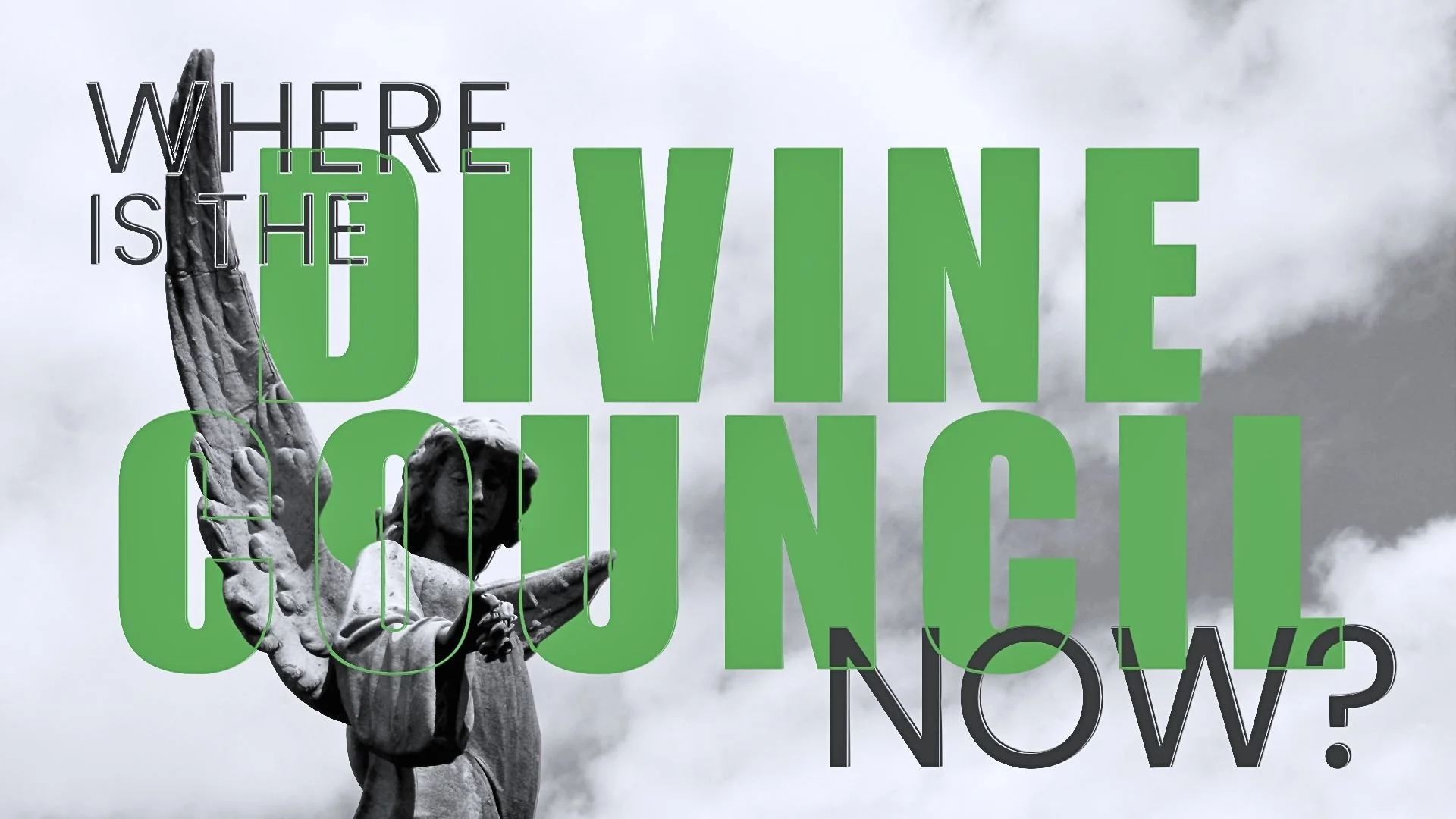Anthony Delgado
Husband, Father, Pastor, Teacher, Writer, Podcaster
Biblical ReEnchantment Podcast


Eden doesn’t disappear after Genesis 3. In this episode of the Biblical Reenchantment podcast, I sit down with pastor and Two Trees Podcast host John Dillon to talk about his book The Way of Eden—and why the Garden of Eden functions as a theme that keeps shaping the biblical story long after Adam and Eve leave the garden. We’ll trace how Eden imagery shows up in exile, spiritual warfare, and everyday Christian life. What does it mean to resist the darkness without turning our neighbors into enemies? How do “pockets of Eden” form in households, friendships, and local churches? And how does Scripture—like a river in the wasteland—grow resilience in a noisy, unstable world? We also explore dominion vs. dominance, the Bible’s use of tree and river imagery, and why the fruit of the Spirit is part of how Christ’s people bear witness to the kingdom of God right now.
Halloween’s imagery of monsters and giants is linked with Reformation themes through the views of Calvin, Luther, and Zwingli. Calvin, following an Augustinian Sethite reading of Genesis 6:1–4, denied a literal angel–human hybrid origin but described the Nephilim as violent tyrants—both “giant” and “fallen”—preserving their moral and symbolic meaning. Luther used giants and serpents to portray Arian heretics opposing the Trinity, likening them to Israel’s ancient foes and grounding confidence in Christ’s triumph over every power (Psalm 2; Psalm 110; Hebrews 1). Zwingli, more rational and wary of superstition, rejected occult practices and saw idolatry itself as demonic temptation, focusing instead on disciplined obedience to Scripture. Together they held to symbolic readings of giants but often overlooked their supernatural roots in Genesis 6 and 1 Enoch. Yet Scripture unites both realities—the literal and the symbolic—as in Jesus’ walking on water, which shows his authority over chaos. Giants, then, represent real spiritual rebellion and enduring tyranny that resists God’s rule, seen not only in ancient empires like Egypt and Babylon but also in modern powers such as AI or alien ideologies that draw humanity away from devotion to Christ.
Humanity was created for communion with God but became estranged through Adam’s exile from Eden—a spatial and relational separation symbolized by eastward movement away from sacred space. This estrangement, inherited by all humans, frames sin not as the root problem but as the consequence of being spiritual orphans. Redemption is not primarily legal pardon but adoption—restoration to God’s family. Scripture emphasizes that not all are children of God by default; adoption into God's household comes only through faith and rebirth. The gospel begins with the Father's love, not law, and its ultimate aim is not moral improvement but restored relationship—a return home from exile, where humans are no longer the prodigal race but beloved sons and daughters.
The interview with Greg Gordon engages his book ‘An Ancient Worship Movement’ and explores his journey from evangelical house church movements to embracing liturgical worship through St. Thomas Church, emphasizing the richness of early church practices. The discussion covers sacramental theology, the integration of evangelical zeal with historical liturgy, and the spiritual depth found in ancient worship traditions. Gordon, along with hosts Anthony Delgado (Biblical Reenchantment Podcast) and Brandon Spain (Unrefined Podcast), reflects on the rediscovery of liturgical elements in modern Christian movements, the role of baptism, spiritual warfare, and the importance of unifying evangelical and sacramental expressions of faith. They also discuss the challenges of contemporary liturgical traditions, the need for revival, and the spiritual battle within worship, ultimately encouraging pastors and believers to reclaim a fuller, more historical approach to Christian discipleship.
This podcast episode explores the Christus Victor model of atonement, emphasizing Jesus’ victory over sin, death, and cosmic powers. We’ll look at the Deuteronomy 32 worldview (and DCW), which describes God assigning divine beings to rule over the nations, many of whom rebelled and led humanity into idolatry. We’ll look at the Divine Council, the Fall of the Watchers, and spiritual warfare, using passages from Deuteronomy, Psalms, Daniel, and other scriptures to illustrate the ongoing conflict between God’s kingdom and fallen powers. The episode highlights Jesus’ triumph over these forces through his crucifixion and resurrection, the implications for believers, and the eschatological hope of Christ’s ultimate reign.
In this episode, Cody and Anthony discuss the urgency of the Great Commission: proclaiming Jesus as King. They’ll examine how the Kingdom Gospel challenges us beyond simply ‘believing’ to actively bringing the nations under Jesus’s rule through discipleship. They also unpack what it means to center the Gospel on Jesus’s Kingship, explore the story of the criminals on the cross, and consider how this Kingdom-centered approach gives profound meaning and purpose to the Great Commission.
In this episode, Cody and Anthony discuss Jesus's kingship as ‘The Anointed One’ or Messiah. We’ll explore how Jesus fulfills the messianic expectations of the Old Testament, taking on the role of both divine Lord and Davidic King. We'll also unpack the significance of Jesus being called ‘the Christ,’ the weight of his authority over all creation, and how this title shapes our understanding of who Jesus is.
In this episode, Cody and Anthony discuss the concept of refugees in the Bible, exploring how the Bible portrays believers as spiritual refugees who leave behind the Kingdom of the World to seek shelter and citizenship in the Kingdom of God, where we will find some profound implications of God’s refuge, the scriptural background for this idea, and what it truly means to live as a refugee in Christ’s Kingdom.
In this episode, Anthony and Cody discuss the theme of divine rebellion, tracing the origins of sin and the influence of spiritual beings in biblical history. They explore how the presence of “serpents” in our world continually tempts humanity toward self-sovereignty and rebellion, drawing connections from Genesis through the New Testament. Together, they unpack the Hebrew Scriptures' portrayal of giants, demons, and the consequences of divine rebellion, emphasizing the importance of personal responsibility in resisting these influences.
Anthony and Cody delve into Genesis 3 to explore the theme of human rebellion and the origins of sin, revisiting the distinction between the meganarrative and metanarrative in biblical theology, and examining how sinfulness begins with Adam and unfolds throughout Scripture. Building on the last episode, which highlighted the importance of the Old Testament for understanding New Testament theology, this episode looks closely at how the ideas of original sin and rebellion carry through to our understanding of the church as a refuge from the world. By the end, we'll see how the Old Testament shapes these crucial theological concepts.
Anthony and Cody explore the New Testament's reliance on the Old Testament, emphasizing how early Christian teachings were rooted in these scriptures. They also discuss the historical dangers of "New Testament-only" sects, like Marcionism, which rejected the Old Testament, leading to theological distortions. Finally, they explain why understanding the Old Testament is essential for framing the New Testament, rather than treating it as an entirely new movement.
In this episode, The Gospel as Story, Anthony and Jami discuss the narrative elements of the Gospel. We’ve already talked about what the Gospel isn’t and what a Gospel is. In The Gospel as a story, we unpack some of the ways that the Gospel is presented in the scriptures and the Church Fathers and comment on the differences with the way the Gospel is presented today.
Biblical ReEnchantment Books
Biblical Theology Videos
Prayer is presented as a grace-driven practice shaped by the structure and theology of the Lord’s Prayer. It begins with adoration, recognizing God’s holiness, transcendence, and fatherly nearness, which reorients the heart away from self toward divine character. Confession is described as honest acknowledgment of specific sins, not for shame but for healing and transformation. Thanksgiving arises from the reality that Christ’s reign is already inaugurated in heaven and awaited in fullness on earth, forming the foundation for gratitude. Supplication is framed through the request for “daily bread,” which challenges inflated ideas of need and calls for trust in God’s faithful provision. Throughout, prayer is portrayed as communion with God that shapes the whole life in humility, dependence, and hope.
This video explores the theological conversation between Dr. Michael Heiser’s Divine Council Worldview and Christopher Kou’s review for Theopolis Institute, showing how both perspectives ultimately point toward the same supernatural and sacramental vision of reality. Heiser and Theopolis share more common ground than disagreement—each affirming the Divine Council as a real biblical concept, a heavenly assembly under God’s authority, and each placing Christ as its reigning head. This worldview demonstrates how we can restore the wonder lost to modern materialism, portraying the cosmos as alive with God’s presence and humanity as participants in Christ’s rule. Along the way, we examines topics like the nature of the “gods” in Psalm 82, the meaning of Genesis 6 and the Nephilim, and the role of 1 Enoch in Second Temple Jewish thought, urging discernment without dismissing historical context. Ultimately, believers are called to recover an enchanted faith—one that sees Scripture as a living, supernatural story of Christ’s victory over the rebellious powers and his ongoing reign over heaven and earth.
The Unseen Realm: Expanded Edition presents an exploration of the Bible’s supernatural worldview, uncovering how ancient concepts of divine beings, spiritual rebellion, and cosmic order reveal the majesty and sovereignty of God. It examines themes such as the divine council, the origin and nature of the Nephilim, and the continuity of supernatural conflict from Genesis through Revelation. The book draws comparisons between biblical and ancient Near Eastern cosmologies, clarifying that while mythological parallels exist, Scripture uniquely discloses the one true God whose authority encompasses heaven, earth, and the unseen realm. It also highlights traces of Trinitarian thought in the Old Testament, the multifaceted nature of atonement, and the theological meaning of celestial order as a reflection of divine governance. Through these studies, The Unseen Realm reclaims the ancient biblical perspective that all creation—visible and invisible—is ordered under Christ, whose lordship extends beyond time, space, and every spiritual power.
Articles by Anthony Delgado
Before the darkness of sin descended onto our world, there was a time when God walked with mankind beneath the branches of a garden, and all was right with the world. It is hard now to imagine it, for we live in a world shaped by deceit and violence, but even in the darkness there is light. God is yet at work in his creation, and this book is a calling to remember what once was and what will be again. It is a calling to not lose hope, but to resist the darkness, not through violence or hatred, but by cultivating the fruit of the Spirit. A calling to remember that though we stand outside the garden, God is yet with us.
In his book, The Unseen Battle, Joel Muddamalle develops the concept of spiritual warfare through the Bible’s supernatural worldview. The book explains why the world looks spiritually fractured, politically chaotic, and morally contested. The book is a biblical-theological work, solidly grounded in Scripture and the Ancient Near Eastern (ANE) context. Muddamalle organizes the story of spiritual warfare around a supernatural framework of God’s supernatural and human families. He further explores how the relationship between these two households informs the narrative of conflict, rebellion, and redemption in the biblical text. The goal of The Unseen Battle is to bring understanding of the powers at work in the world and to highlight the order brought through Christ’s victory over all things.
In conservative theological circles, the term divine primarily refers to God (the Trinity or the Godhead) as the ultimate, supernatural reality. But in historical usage, the term can be used to describe that which proceeds from God (like Jesus’s nature or the Holy Spirit’s work) or, in biblical contexts, figures in God's heavenly council (angels, etc.) as “divine” or “sons of God,” though these beings are clearly not God Himself. Divinity, broadly speaking, then, denotes something of God’s nature, essence, or involvement in his nature or essence, distinguishing it from mere human goodness or the gods of other faiths, while still acknowledging divine attributes in created beings, such as angels and divinized humans.
You may or may not be aware of the recent debate between some classically Reformed voices and some of the more ‘fringe’ or DCW (Divine Council Worldview) voices regarding how we should speak about spiritual beings described in Scripture. The debate seems esoteric to many, but to others it's a significant argument as it touches on fundamental questions in orthodox Christianity about biblical interpretation and the nature of God. More importantly, this is a conversation where both sides share far more common ground than the dogmatic exchanges suggest.
To the ancients, kingship wasn’t merely a human institution; it was divine. We often note how the nations surrounding Israel believed their kings were appointed by the gods and even regarded as sons of the gods. The Tale of King Keret, an Ugaritic myth from the Canaanites, offers one of the clearest examples of that idea. It tells of a broken king whose dynasty has fallen, weeping until the high god El appears to him in a dream and promises to restore his line through divine favor. Keret’s authority, victories, and even his children are granted by the will of the gods, showing how the Canaanites equated royal power with divine appointment. This story illustrates the theology of kingship in the ancient Near East and illumines the cultural backdrop against which Israel’s own view of covenantal kingship emerged.
Carmen Joy Imes’s Becoming God’s Family: Why the Church Still Matters (IVP Academic, October 28, 2025) addresses contemporary disillusionment with the church by presenting a biblical theology of God’s presence among His people. Completing a trilogy that began with Bearing God’s Name (covenant and law) and Being God’s Image (creation and identity), this volume explores the church as God’s chosen family, intergenerational and global, called to embody His mission despite scandals, polarization, and deconstruction. With endorsements from leading scholars and pastors, a foreword by Esau McCaulley, and resources like discussion questions and BibleProject links, Imes provides scholarly depth and pastoral care. Drawing from the full sweep of Scripture—from Abraham’s household to the church as the Spirit’s temple—she argues that God’s presence has always been tied to a gathered community, not isolated individuals, and that remaining in the church is central to Christian life and God’s redemptive plan.
While Protestantism and Evangelicalism share historical and theological roots, they are not identical. Protestantism emerged from the sixteenth-century Reformation, characterized by the Five Solas—faith, grace, Scripture, Christ, and God’s glory alone—and emphasized the authority of Scripture, justification by faith, and continuity with historic orthodoxy. Evangelicalism later emerged as a movement within Protestantism, centered on Biblicism, Crucicentrism, Conversionism, and Activism. The two overlap in rejecting Roman Catholic dogma and affirming salvation by faith, yet diverge as Evangelicalism often prioritizes personal experience, revivalism, and innovation over historical theology and ecclesial order. Some Protestants reject the Evangelical label due to modern theological drift, while some Evangelicals dismiss the Protestant title as outdated, favoring renewal and cultural adaptability. Evangelicalism is at its healthiest when it is consciously Protestant—rooted in Reformation convictions—while Protestantism remains vital when it is truly Evangelical in its gospel mission.
This article examines the current viral prediction of a September 2025 rapture by South African preacher Joshua Mhlakela, placing it within a long history of failed forecasts like those of Harold Camping. It argues that while the Bible clearly teaches Christ’s return will be sudden, visible, and unknowable in timing, the modern doctrine of a secret rapture is a 19th-century invention of dispensationalism, spread through conferences, radio, and popular media rather than Scripture itself. Instead of anxious speculation or escapist hopes, Christians are called to readiness through faithfulness, holiness, and active discipleship—raising families in the Lord, practicing justice and mercy, persevering in suffering, and serving within the church. The true biblical hope is not escape from tribulation but the transformation of creation at Christ’s visible return, when the dead will be raised, evil judged, and God’s kingdom fully established in a new heaven and new earth.
The expanded edition of The Unseen Realm adds over 17,000 words, twenty-four expanded chapters, a new appendix, and more, making it about 175 pages longer than the original. Released by Lexham Press in a deluxe hardcover with striking artwork, it serves as a worthy tribute to Michael Heiser’s legacy. The book challenges Western Christianity’s flat, naturalistic view of Scripture by recovering the biblical authors’ supernatural worldview. Some readers may find its depth demanding, especially those new to biblical theology, but many will welcome its insights and clarity on passages often called “weird” or confusing. The expansion integrates material once only online, weaving it into the book to present Heiser’s broader reflections. For these reasons, I give the expanded edition a full ⭐⭐⭐⭐⭐, recommending it both to long-time students of Heiser’s work and to thoughtful readers eager to engage the Bible on its supernatural terms.
The Biblical authors portray God as ruling from his throne in heaven, surrounded by a council of heavenly beings. This ‘divine council’ appears in multiple Old Testament passages, functioning as God’s heavenly court intended to mediate his governance to all the nations. But by the time of the New Testament, this council was removed from power due to rebellion against God and was replaced by the sole authority of Christ. To ask what happened to the divine council is to trace the story from creation to the consummation of God’s kingdom in the end.

Anthony Delgado
Anthony Delgado is a pastor, author, and biblical-theology teacher committed to helping the church see the Scriptures with clarity and enchantment. He believes the gospel is bigger than many Christians assume and that all of life is reformed through Christ’s present kingship. He sees the Bible as a single story of God’s redemption running from Genesis to Revelation and seeks to unearth that narrative through the threads woven throughout Scripture.
Anthony has nearly two decades of experience in Christian leadership and Bible teaching. He studied Christian Reason at Sterling College and holds an MABTS from Knox Theological Seminary. Through books, preaching, teaching, and digital resources, he explores Scripture in its Ancient Near Eastern context, highlights the Bible’s supernatural worldview, and equips Christians to follow Jesus with understanding and radically ordinary faithfulness.
Anthony is the author of God-Shaped Prayer (2025), The Gospel is Bigger than You Think (2024), and The Watchers and the Holy Ones (2023). He hosts the Biblical Reenchantment Podcast and a YouTube channel (@AnthonyDelgadoBR) focused on reenchanting the Christian faith. Though ministry and writing keep him busy, he also treasures time outdoors with his wife and three kids—biking, kayaking, hiking, and enjoying God’s creation.
This page may share teaching from Palmdale Church, updates on new writing and YouTube content, resources from Biblical Reenchantment, and reflections of various kinds.
Anthony describes his theology as Reformed, Baptist, Continuationist, and Covenantal, with a Divine Council Worldview (DCW).
Lead Pastor
Palmdale Church
Palmdale Church is a multigenerational, multiethnic Christian community devoted to following Jesus and sharing Jesus’ love with our communities in Palmdale and in the Antelope Valley. Palmdale Church gathers for popup church services in different public locations.
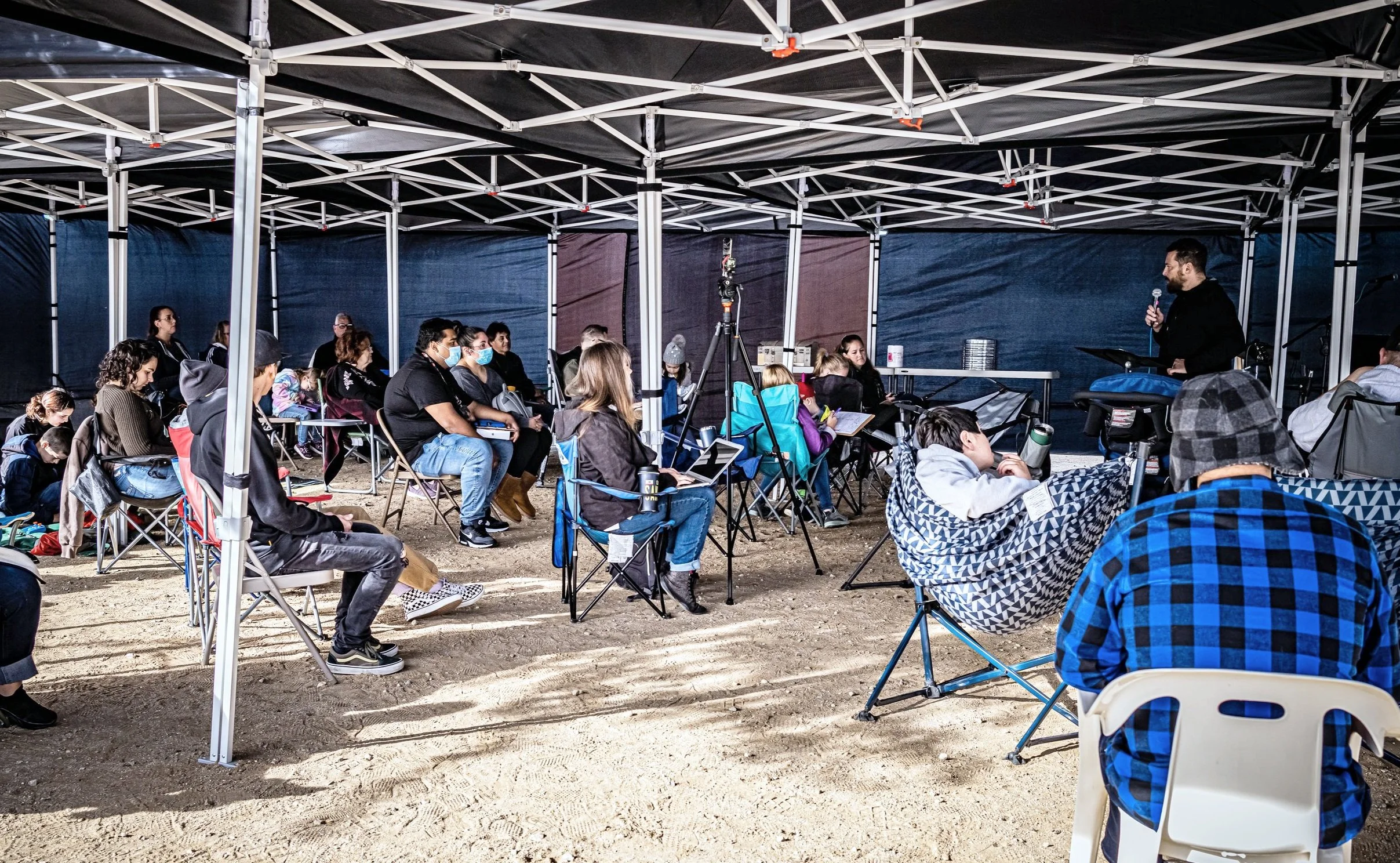
Palmdale Church, Popup Worship Service @ Yellen Park, 10-10-21

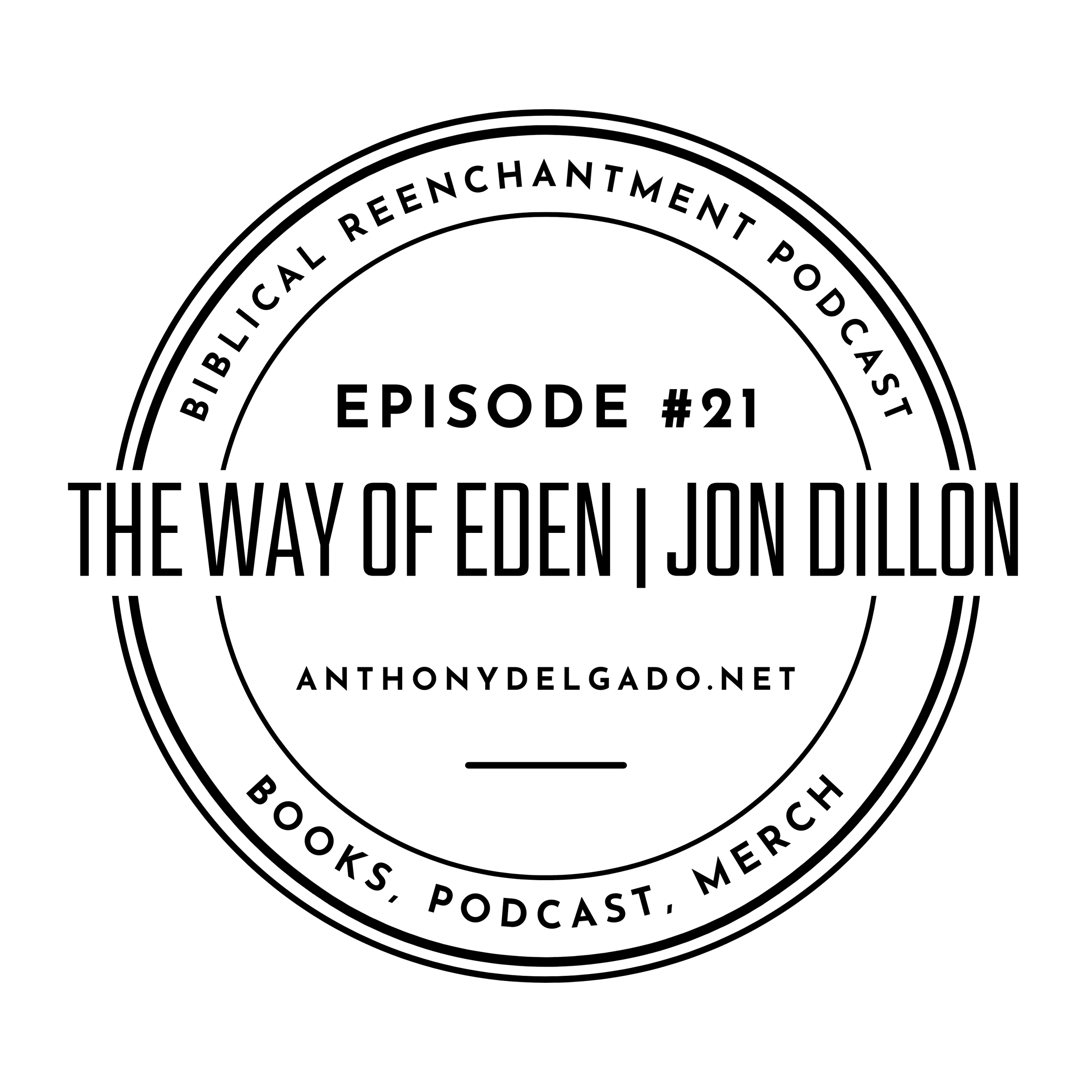

















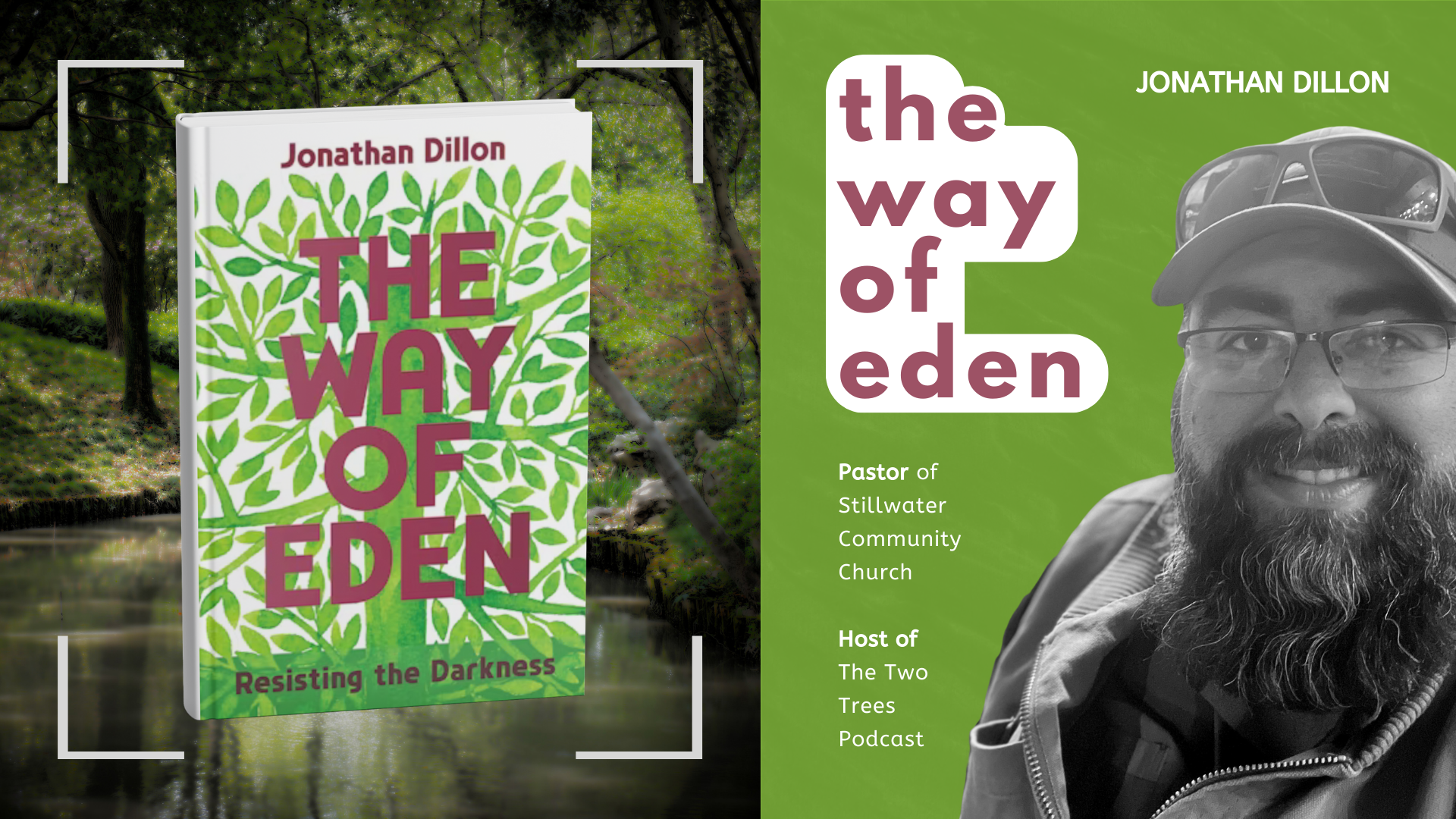




![Becoming God's Family by Carmen Joy Imes [REVIEW]](https://images.squarespace-cdn.com/content/v1/62432fcf146757356a34a5b9/1761675475156-0ZUIK0XIGFKBQODP84HO/Carmen+Joy+Imes+Becoming+God%E2%80%99s+Family+Why+the+Church+Still+Matters.jpg)

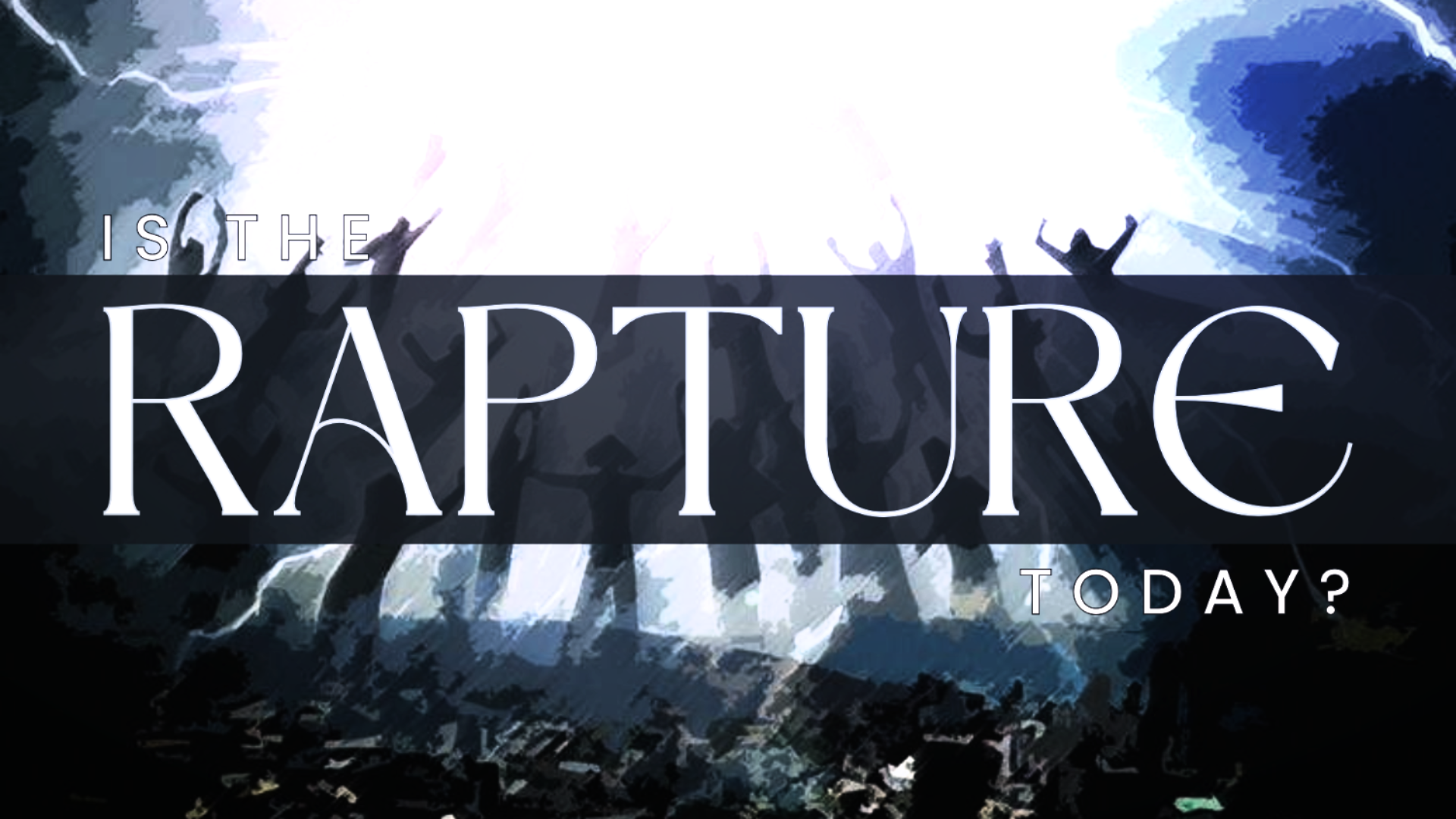
![[Review] EXPANDED: THE UNSEEN REALM](https://images.squarespace-cdn.com/content/v1/62432fcf146757356a34a5b9/1758220086783-LGEIHXK6T8NLZZ1VI9AT/What+the+Unseen+Realm+Didn%E2%80%99t+Address+%281%29.png)
